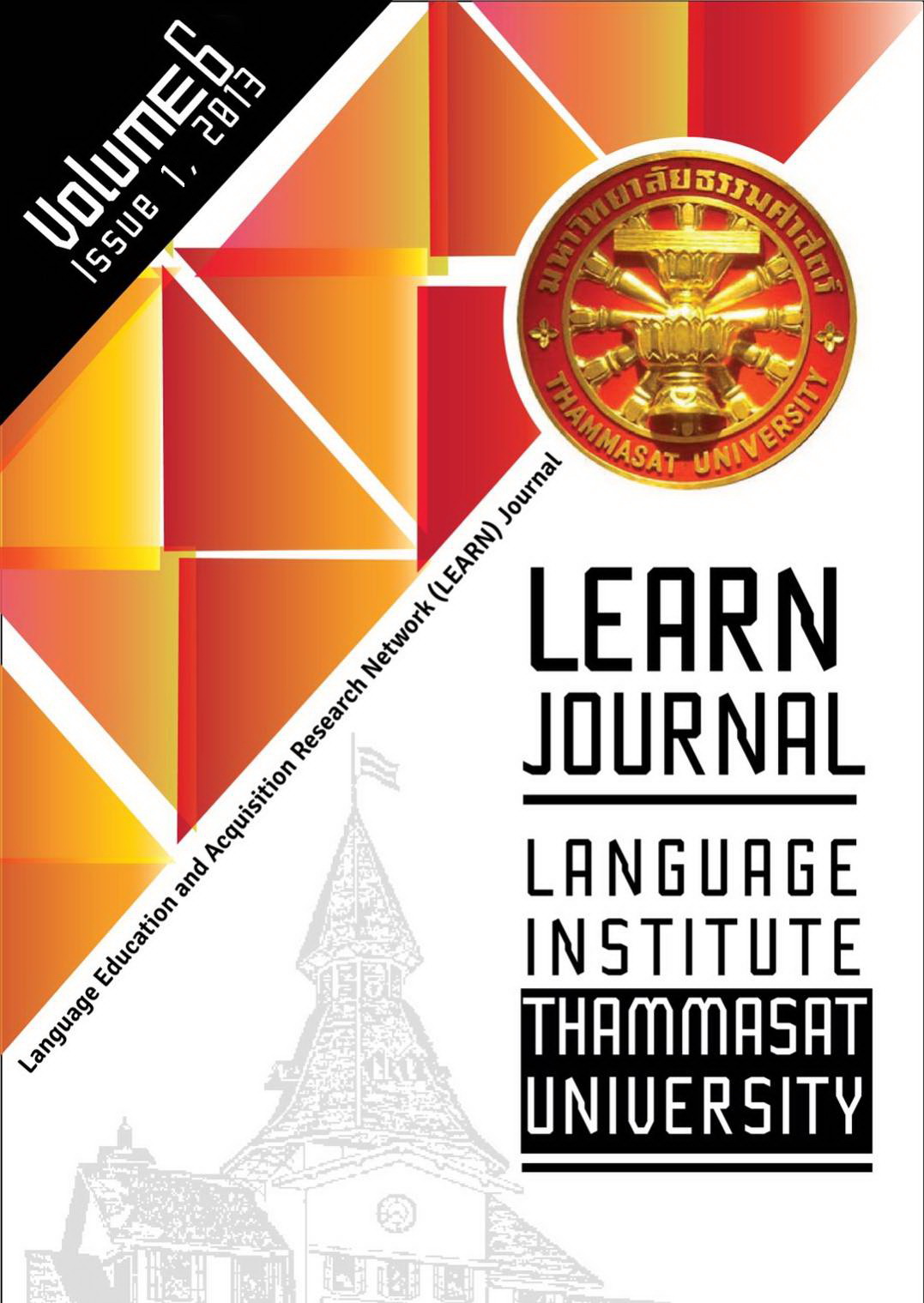Analysis of Collocational Errors of Thai EFL Students
Main Article Content
Abstract
The present study aimed to analyze collocational errors produced by Thai EFL students at two proficiency levels, to examine whether such errors are attributed to first language interference, and to investigate other plausible sources of errors. A total of 60 high school students were recruited to participate in this study. Each student was required to take two collocational tests: (1) a 45-item multiple-choice test and (2) an 18-item Thai-English translation test. The two tests consisted of nine major types of collocations, which included nine lexical and three grammatical collocation patterns. The results revealed that the performance of Thai EFL students in both the receptive test and the productive test appeared to be influenced by mother-tongue transfer when they were confronted with difficulties in dealing with English collocations. Furthermore, it was discovered that there were other potential factors that contributed to the high degree of collocational errors committed by the higher and lower group, such as the synonymy strategy, the learners’ creative invention and the strategy of analogy, the paraphrasing strategy, and low knowledge of collocational skills.


